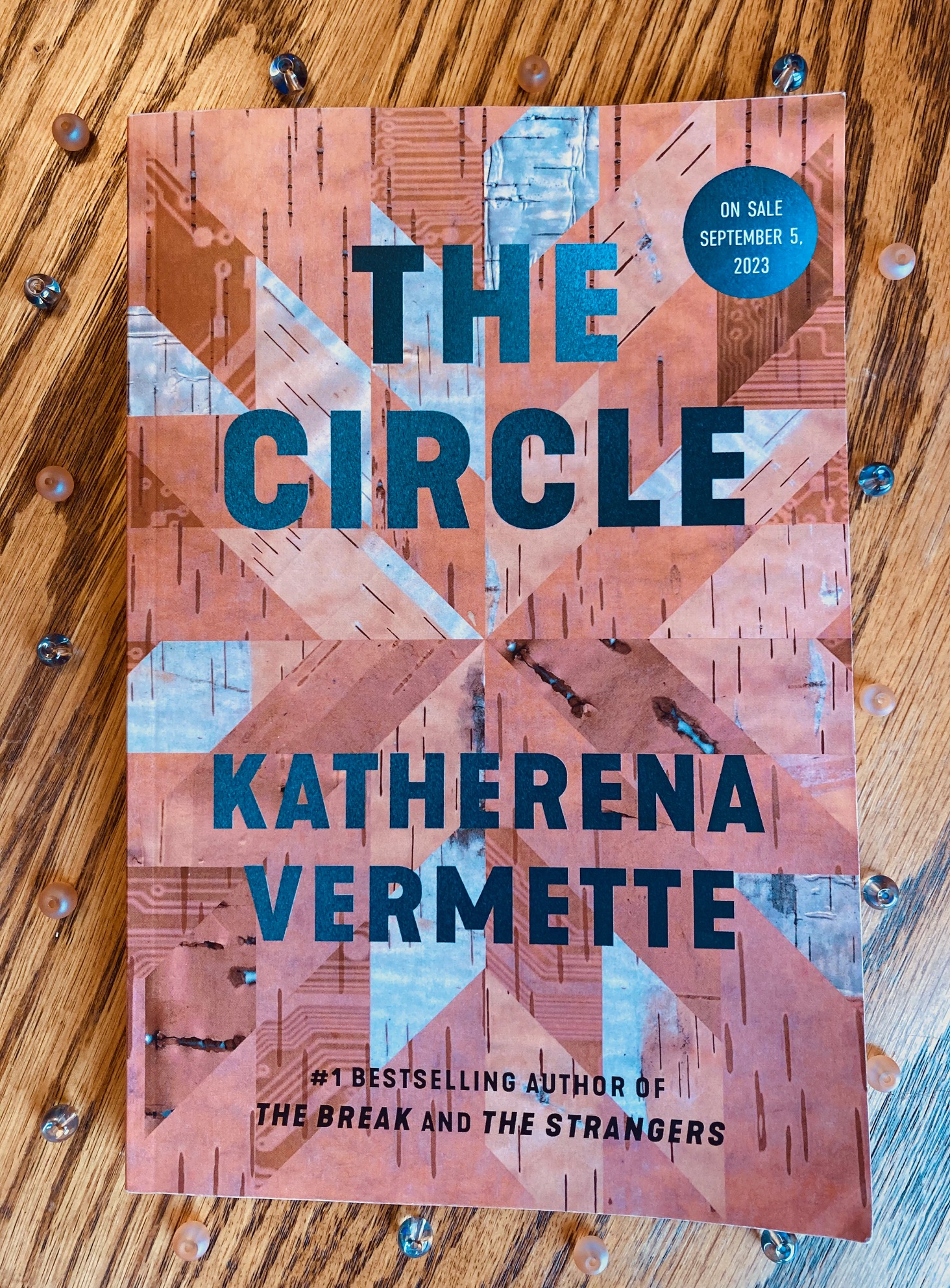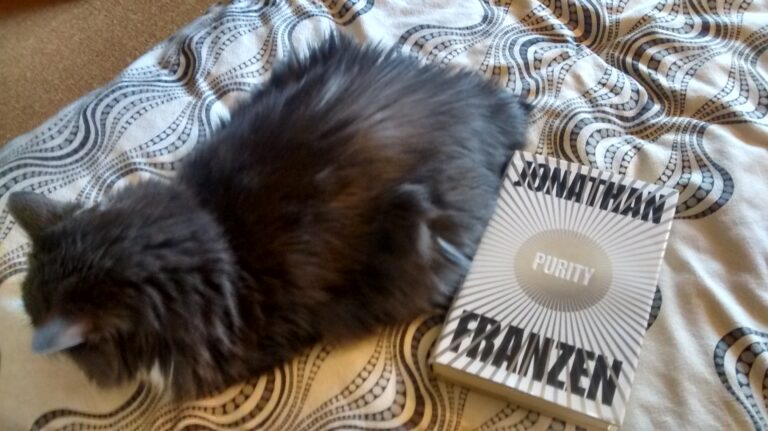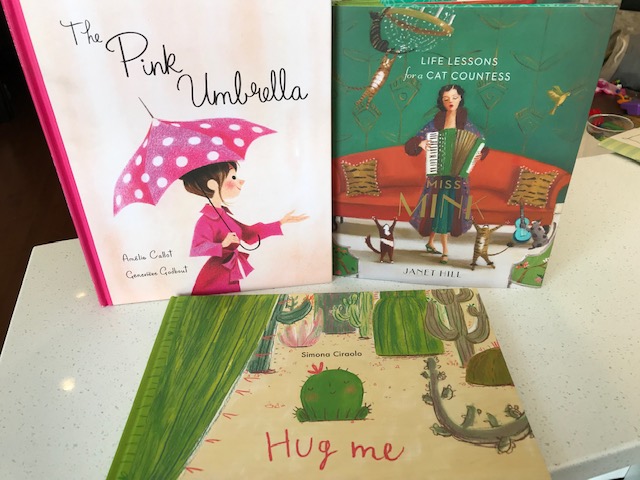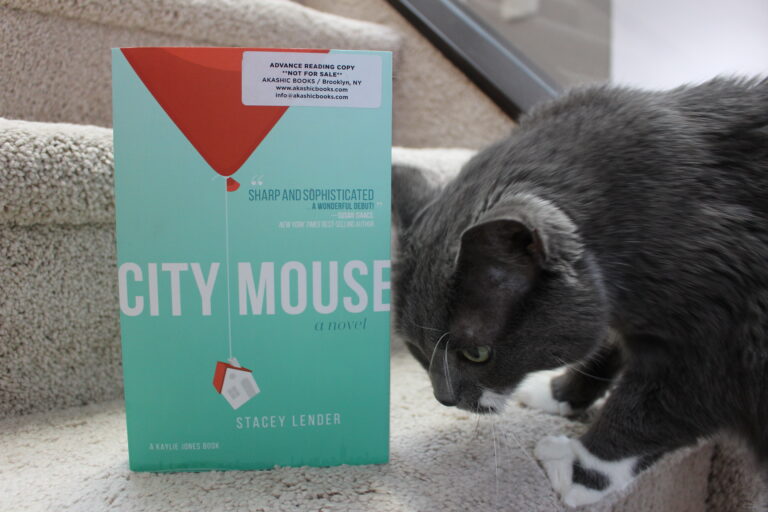Book Review: The Circle by Katherena Vermette

Six years ago, I read and reviewed The Break by Katherena Vermette. It was the first in a trilogy about a violent act, and although I didn’t read the second and middle book The Strangers, I’ve now read the last in the series, The Circle. I described that first book as a literary mystery which is a term that could technically be applied to the last installment as well, because it isn’t until the very last few pages that we determine what happened to Phoenix, the girl who was just released from prison for committing the violent act in the first book. Rather than a work of suspense, The Circle is best described as a survey of an environment of people: painting a picture of multiple lives that move in and out of each other’s orbits, for better or for worse.
Plot Summary
Having been in prison for a few years, Phoenix is finally released after she has served her time for the assault charges. While inside, she gave birth to a young boy named Sparrow, who is living with extended family, as many of Phoenix’s immediate relatives are unable to care of a child. It isn’t until the very last chapter that we hear directly from Phoenix and what she did upon her release, so leading up to this are various perspectives from different people who were affected by Phoenix’s actions. No perspective is repeated, and there are 22 in total, so the diagram of all the characters at the beginning of the book is helpful to refer to. Not quite a family tree, each person sits within a circle, with Phoenix in the middle. We hear from Phoenix’s victim, the family of the victim, the social worker who had Phoenix on his caseload, Phoenix’s family, friends of the victim, even a healer that’s working with Phoenix’s mother as she battles her addictions. The plot progresses through these viewpoints as we learn that Phoenix has failed to check in with her parole officer, and foul play is suspected because so many people in this community have been hurt by this woman’s actions, so there’s no shortage of people who wish her harm.
My Thoughts
The book takes place in present day Winnipeg, which is a Canadian city with a concentrated Indigenous population. It is also a place that sadly, many Indigenous women go missing and are murdered, which is likely one reason why Phoenix’s disappearance is immediately assumed to be a criminal matter. Gang activity is also common in the area, and we hear from a retired journalist, detective, and gang member who offer a clearer picture of what life is like for certain members of that population and the violence that is all too frequent. All these different and often contradictory perspectives serve to highlight the intention of this book; although the plot stems from this one violent act in the first book, The Circle is about the systems keeping people in place, not the individuals themselves. We connect with the characters by hearing from each of them, which in turn creates a narrative that drives the reader forward, but we also get an in-depth look at how this community operates as a whole. There are those who are bucking against the system, trying to changes things for the better, there are those who oppress and maintain the status quo because it keeps them in power, and there are those who are vulnerable, suffering from a set of colonialist rules that are changing too slowly, falling victim to a life that’s virtually impossible to break free from. It begs the question, how does one heal the whole community?
The characters themselves grapple with guilt for different things; Phoenix’s mother grapples with the pain of her addiction, and her shame of not being a better mother, having both her children taken away from her. Phoenix’s actions are horrific and not excusable, but her upbringing was also horrific, and had many horrible things done to her. Elise acknowledges her part in her daughter’s violent act often, berating herself for what more she could have done:
“She couldn’t even be a good mother. And that’s basic, bottom-line kind of stuff. Waaban says our parenting has been interrupted by colonialization and residential schools. But Elise has no excuse. She was raised by her good, decent Mamère and Grandpa Mac. She should have known better.”
-p.81 of The Circle by Katherena Vermette, ARC edition
Blame is a major theme, and as the book progresses, it’s obvious that there are many things, institutions, and people to blame for the dysfunction, both past and present. Despite this somewhat depressing topic, this whole trilogy were award-winning bestsellers in Canada, so I’m heartened by the fact that Canadians care about this, and will hopefully work towards improving the life of Indigenous people in our country.





I’ve read the first two but haven’t read this one yet. It seems like it’s getting less attention than the first two did, but maybe that’s just me.
The first two were both bleak, so I expect this one to be as well. I love them, though!
Yes i think you’re right this one didn’t get too much attention. I think many people found it bleak, which may be some of the reason behind the drop off in interest…